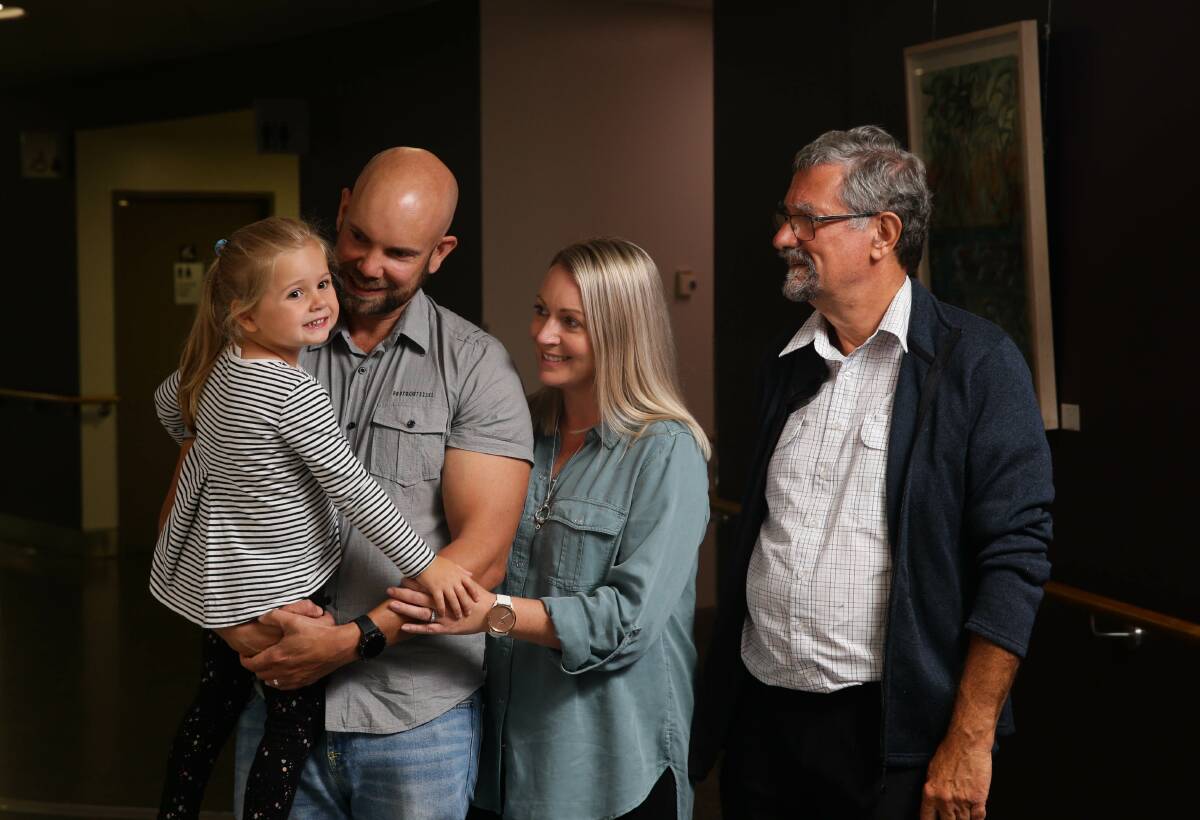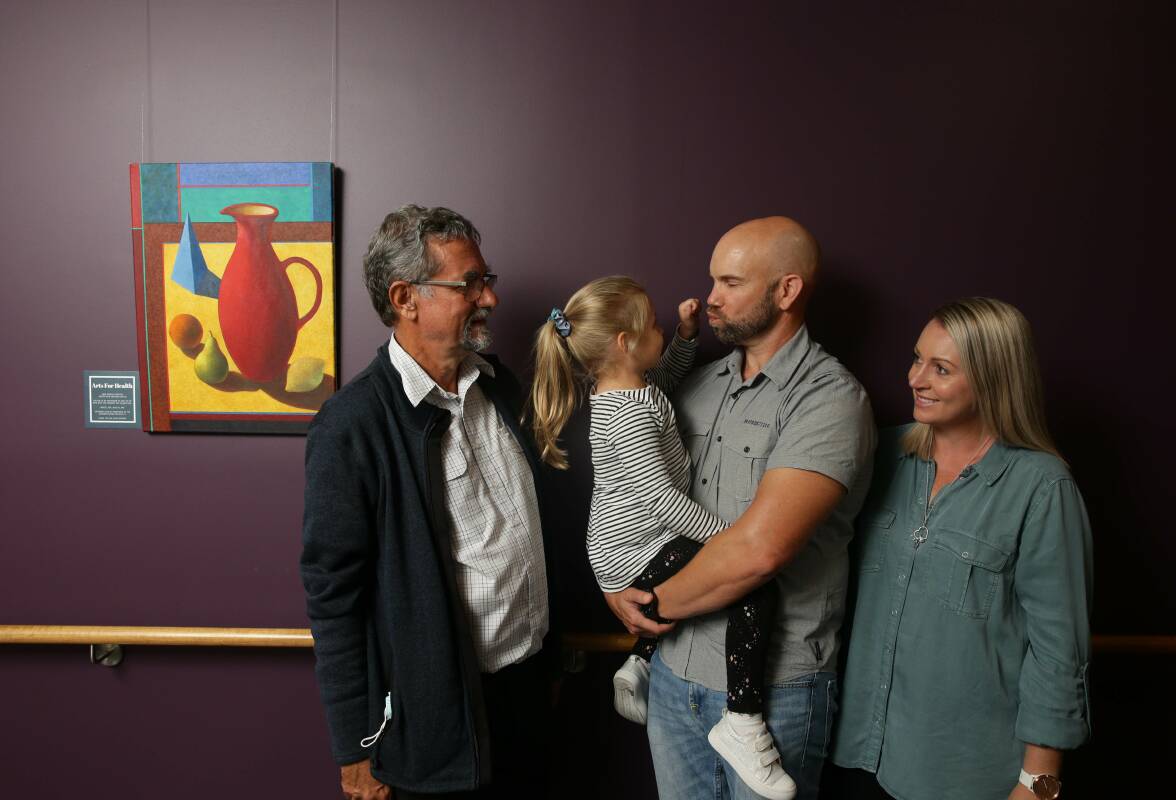
HAD Enid Smith not had a blood transfusion while still in her mother's womb, the sprightly four-year-old from Heddon Greta would not be bouncing around the foyer of the John Hunter Hospital, smiling and waving at the man who saved her life.
As obstetrician Dr Henry Murray retires from his role at John Hunter Hospital, he leaves behind thousands of stories much like Enid's, and a "huge legacy" of improved access and better health outcomes for mothers and babies throughout Hunter New England.
Enid's mother, Casey Smith, explained how lucky they were to have Dr Murray on their side after receiving the distressing news their baby's life was in danger. She was almost halfway through her pregnancy with Enid when one of her other children picked up a human parvovirus infection - or "slapped cheek" - at preschool.
"I didn't have any symptoms, but because my husband is a pharmacist, he knew that if I had slapped cheek that it could be quite bad in the second trimester," she said.
"My obstetrician told me there was a very low chance I'd get it - because about 75 per cent of the population had already had it somewhere in their life, and that once you've had it, you don't tend to get it again.
"It turns out I was in the 25 per cent who hadn't had it yet. And I had it."
It meant fortnightly scans to make sure the baby didn't develop anaemia. But at about 24 weeks, Mrs Smith noticed she hadn't felt her baby move all day.
"I went to my scan the next day at a Newcastle ultrasound clinic, where I was told the terrible news that I needed to go back to my obstetrician straight away because my baby was in danger," she said.
They were sent to John Hunter Hospital to see Dr Henry Murray, who confirmed the baby had developed severe anaemia and "fetal hydrops" - a life-threatening accumulation of fluid.
"He said it was the worst case he'd ever seen, and we needed to act straight away."
Baby Enid's heart was only the size of a thumbnail. But without an urgent blood transfusion into a particular part of her heart, she was going to die. She had all the signs of heart failure - and less than a week to live - when Dr Murray stepped in. Usually, blood transfusions are delivered via large veins.
"But we had to put it into the baby's heart - and into a part of the heart that wasn't going to cause any harm," he said. "You're going through mum, and through the chest of the baby ... 2 millimetres either way and you're done.
"Even then, it's in water, so it is like trying to hit a ping pong ball in a bath. There's a 10 per cent chance the baby will die as you are doing it."

But the transfusion tripled the baby's haemoglobin to put it into the safe range.
Having worked in obstetrics for 40 years - 12 of those at Hunter New England - Dr Murray has seen the impact the development of ultrasound has had on people's lives.
"For someone like Enid, who got really sick when her mum got an infection, there is no way she would have survived 30 years ago," he said. "But we now have this window to provide therapies and get very good outcomes."
Dr Murray helped develop specialist outreach clinics that had halved smoking in pregnant Aboriginal women and reduced low birth weights in the health district by two thirds.
When he first arrived in the Hunter, the rates of pre-term labour and low birth weight babies was "quite high". Mothers and Babies Report data shows the number of stillbirths and neonatal deaths were some of the highest in the state at the time. But Dr Murray - also an Associate Professor - established good relationships with GPs and obstetricians throughout the district. They all knew they could call him - day or night - for instruction or advice if a mother or baby was in trouble.
"The worst thing about obstetrics is that when things go wrong, you need help straight away," he said.
"Losing a baby is a terrible thing, and if you are looking at avoidable stillbirths, they have dropped hugely in my time."
Dr Murray's pioneering maternal network model has since been adopted by the ministry and implemented in every health district in the state. He travelled to developing countries to teach ultrasound to doctors in the Pacific and the Middle East.
He was proud of his legacy, which allowed women to get the same access to high level care.
But now, Dr Murray is turning off his phone - at least for a while - to enjoy retirement in Port Stephens.







